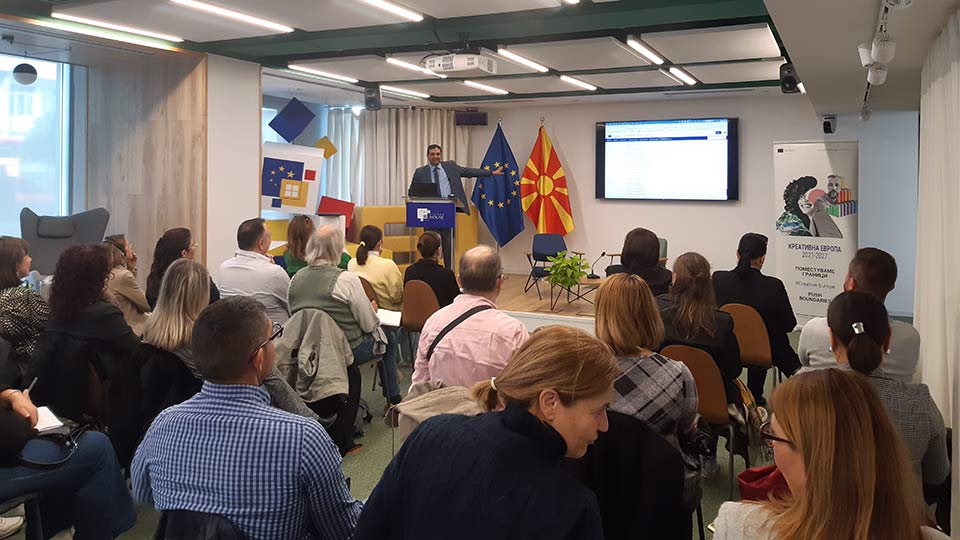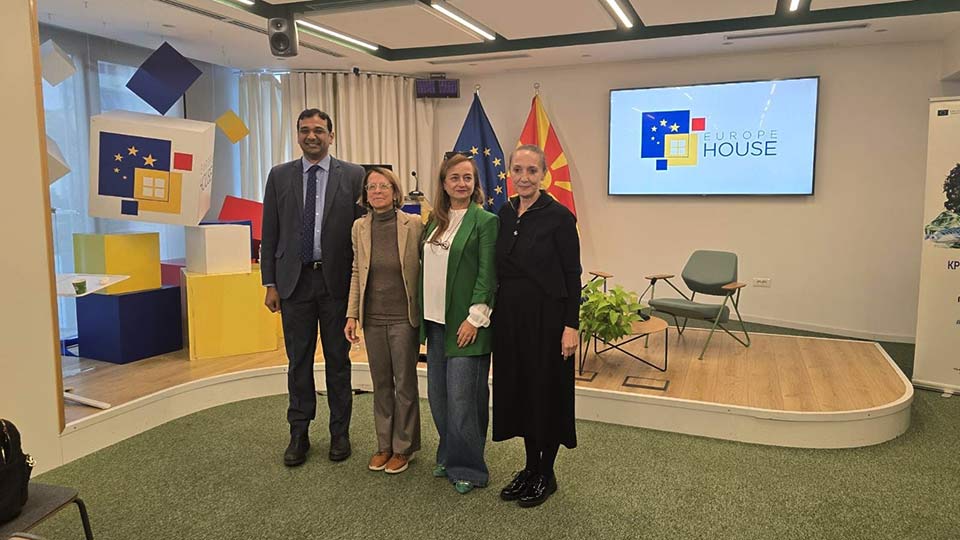On October 14 and 15, 2025, a two-day transnational event on the topic "Enhancing Cultural Heritage through European Collaboration – Networks, Mobility, and EU Funding Opportunities" was held at the premises of the National Institution Porta and the Europe House Skopje, North Macedonia.
The event was organized by the Creative Europe Desk MK and the Ministry of Culture and Tourism of the Republic of North Macedonia, in partnership with: the Delegation of the European Union in Skopje, the Ministry of Education and Science, the Agency for European Educational Programmes and Mobility, the NI Institute for the Protection of Cultural Monuments and Museum Bitola, the NI Archaeological Museum of the Republic of North Macedonia, the NI Stobi, the Faculty of Philosophy at the "Ss. Cyril and Methodius" University in Skopje, and the Center for New Initiatives in Arts and Culture – Lokomotiva, Skopje.
The thematic focus of the event was cultural heritage as a foundation for European Union policies and as a key area for funding opportunities through the “Creative Europe”, “Erasmus+”, and “Horizon Europe” programmes. The event showcased activities and best practices of European and regional networks that play a crucial role in supporting transnational cooperation, mobility and the development of European projects.
The event was formally opened with an introductory address by the Minister of Culture and Tourism, Mr. Zoran Ljutkov. In addition to national professionals representing institutions and organizations that are beneficiaries of these EU programmes, the event also brought together distinguished European experts in the field of cultural heritage, including: Margherita Sani, Associate Professor at the University of Bologna and Coordinator of the LEM Project within NEMO (the Network of European Museum Organisations); Prof. Pier Giacomo Sola, Senior Researcher at the European network “Michael Culture” from Italy; and Dr. Krishna Chandramouli, Veneca EU, from the United Kingdom.
The event was intended for both potential and current beneficiaries of EU programmes: including public institutions, associations, municipalities, educational establishments, and organizations active within the broader context of cultural heritage.

